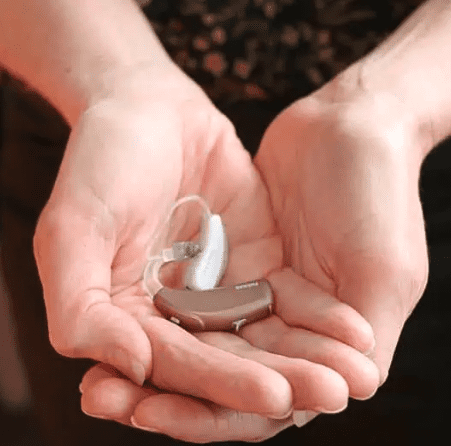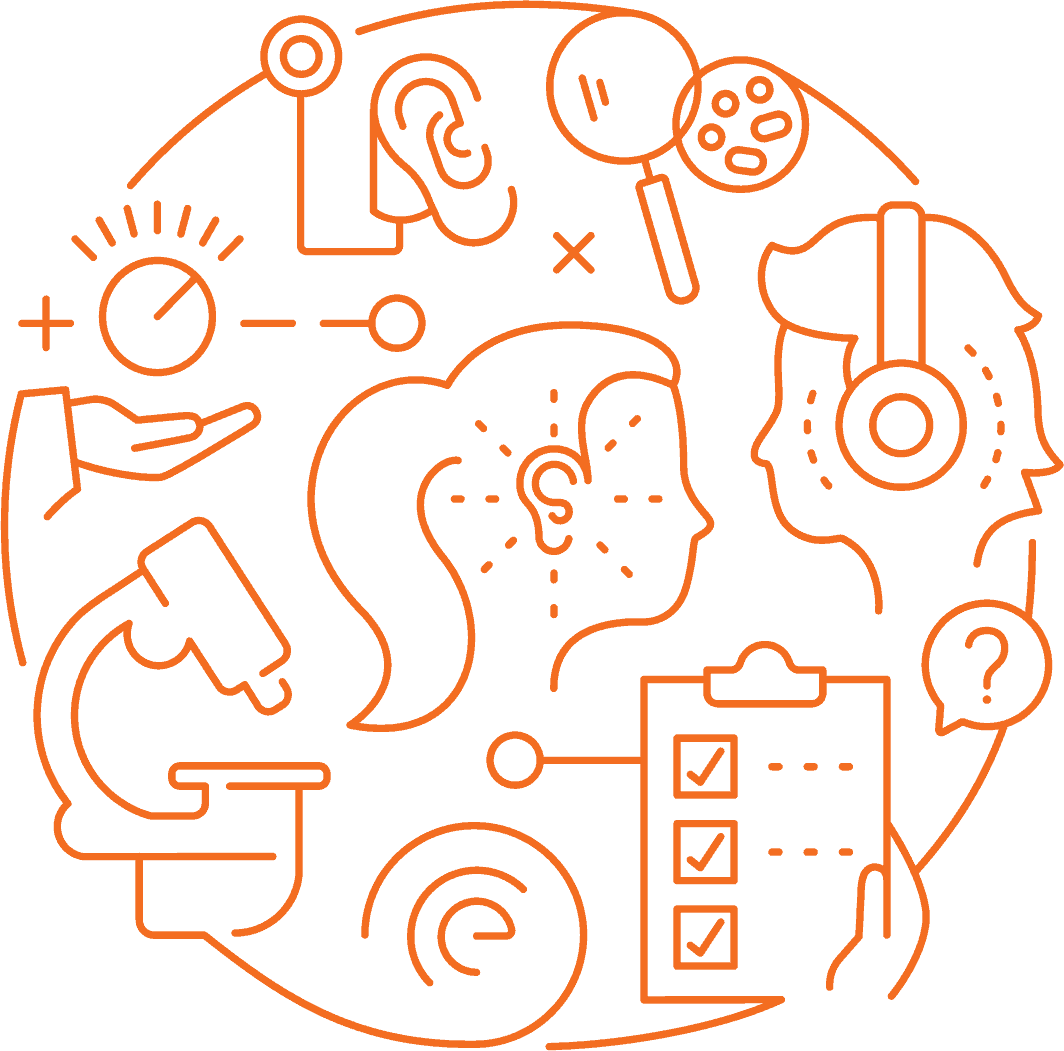Hearing aid technology has witnessed significant advancements in recent years, leading to improved hearing experiences and enhanced quality of life for individuals with hearing loss. These innovations can be seen in various aspects of hearing aid technology. In this article, we will explore some of these hearing aid advancements in detail.
Directional Technologies
Directional technologies in hearing aids have revolutionised speech understanding and sound processing in challenging environments. By focusing on sounds from the front while reducing sounds from other directions, directional technologies enhance speech intelligibility in noisy situations.
Through strategically placed directional microphones, these technologies amplify speech signals and reduce background noise, resulting in increased listening comfort and reduced fatigue. Additionally, directional technologies improve the overall sound quality by optimising the signal-to-noise ratio (SNR), a measure of the difference between the sound you want to hear and the background noise (Wu et al. 2021).
Bluetooth Connectivity
The integration of Bluetooth technology in hearing aids has opened up new possibilities for connectivity. Bluetooth compatibility allows hearing aids to connect wirelessly with mobile phones and other devices, eliminating feedback from the microphone and improving the SNR. This wireless feature enables seamless communication and enhances the listening experience for individuals using this hearing aid technology.

Noise Reduction & Speech Enhancement Technologies
Background noise poses a significant challenge for individuals with hearing loss. Noise reduction technologies address this challenge by employing advanced algorithms and processing techniques to identify and suppress unwanted noise. These technologies improve speech intelligibility by reducing the interference of background noise, leading to enhanced listening comfort and reduced fatigue in noisy environments. Moreover, noise reduction technologies contribute to increased clarity of speech signals, making conversations easier to follow and improving the overall sound quality for users (Wu et al. 2021).
Sound enhancement technologies, particularly those utilising deep learning algorithms, have made remarkable strides in improving speech intelligibility. By effectively separating speech from environmental noises, these technologies enhance speech clarity, especially in challenging and noisy environments. Experimental results have demonstrated the superiority of deep learning-based techniques in noise reduction and speech intelligibility, providing an enhanced listening experience for individuals using hearing aids (Park et al. 2019).
Tinnitus Masking
Hearing aids are one of the few proven treatments for individuals with tinnitus or ringing in the ears. Some hearing aids extend tinnitus treatment options by offering tinnitus masking features. These advanced devices emit sounds programmed by a hearing care provider to mask tinnitus. This feature significantly improves the quality of life for individuals dealing with tinnitus-related issues (Balling et al. 2021).
The Lyric hearing aid is a specialised device that is designed to be worn 24 hours per day. It is inserted into the ear canal and is virtually invisible. Pilot studies have shown that Lyric wearers report a reduction in how much they experience their tinnitus (Johnson, 2014).
Sound Optimisation through AI
The integration of artificial intelligence (AI) technology into hearing aids has brought about a paradigm shift in sound processing and personalisation. AI hearing aids utilise machine learning algorithms and deep neural networks to analyse and process audio signals in real-time. This allows for intelligent volume control, preference settings for specific sound environments, and personalised sound adjustments based on individual user preferences. By mimicking how the brain perceives sounds without impairment, AI-based hearing aids enhance speech intelligibility, reduce background noise, and adapt sound processing to cater to individual needs (Balling et al. 2021).
In conclusion, the latest advancements in hearing aid technology have transformed the landscape of auditory rehabilitation. Directional technologies, Bluetooth connectivity, noise reduction technologies, speech enhancement technologies, tinnitus masking, and sound optimisation through AI have collectively elevated the listening experiences for individuals with hearing loss. With ongoing research and development, we can expect further advancements in hearing aid technology, leading to even greater improvements in speech understanding, sound quality, and overall satisfaction for users.
Book a hearing assessment with Lions Hearing Clinic today
References:
Balling LW, Mølgaard LL, Townend O, Nielsen JBB. The collaboration between hearing aid users and artificial intelligence to optimize sound. Seminars in Hearing. 42(3):282-294; 2021. DOI. 10.1055/s-0041-1735135
Wu YH, Stangl E, Chipara O, Hasan SS, DeVries S, Oleson J. Efficacy and effectiveness of advanced hearing aid directional and noise reduction technologies for older adults with mild to moderate hearing loss. International Journal of Audiology. 60(10):727-735; 2021. DOI. 10.1097/AUD.0000000000000672
Park G, Cho W, Kim KS, Lee S. Speech enhancement for hearing aids with deep learning on environmental noises. Journal of the Acoustical Society of America. 145(2):EL160-EL166; 2019. DOI. 10.3390/app10176077
Johnson J. ENT and Audiology News. 23(5):84-86; 2014. https://www.phonakpro.com/content/dam/phonakpro/gc_hq/en/resources/evidence/journal_articles/documents/lyric_jacob_johnson_proofs.pdf






